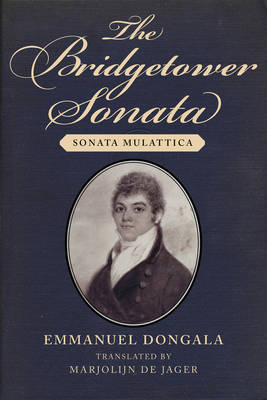
- Retrait gratuit dans votre magasin Club
- 7.000.000 titres dans notre catalogue
- Payer en toute sécurité
- Toujours un magasin près de chez vous
- Retrait gratuit dans votre magasin Club
- 7.000.000 titres dans notre catalogue
- Payer en toute sécurité
- Toujours un magasin près de chez vous
34,95 €
+ 69 points
Format
Description
In this vividly imagined, richly detailed historical novel, acclaimed Congolese author Emmanuel Dongala has focused his laser-sharp wit and wry satirical perspective on the life and times of George Bridgetower, a young violin prodigy, who, at the age of nine, took the courtly world of 18th century Europe by storm--and surprise, given the youth's unusual origins: for young George was of mixed- race parentage, known in the parlance of the day as a mulatto. Though his father Augustus was from Barbados and dark-skinned while his mother was a German handmaiden in the Viennese court, this young virtuoso, proclaimed as the "Black Mozart" was welcomed into the high society of Tout-Paris on the eve of the French Revolution, and later, after he and his opportunistic father fled to England, became a court favorite of the Prince of Wales where his fame spread widely across Europe where he eventually arrived in Vienna and became close friends with Ludwig Van Beethoven himself. Despite their fraternal bonding and the fact that they composed and performed the titular sonata together that Beethoven dedicated to his "little Moor", the two had an irreconcilable falling-out due to an unfortunate slight that Bridgetower made about Beethoven's beloved soon-to-be fiancée Josephine--a schism that resulted in Bridgetower's banishment from Ludwig's circle and the removal of his name from the composition's title that the tempestuous composer changed to the "Kreutzer Sonata", to become one of Beethoven's most famous and enduring pieces. Brimming with lively detail and dialogue and with cameo appearances from historical figures such as writer Alexandre Dumas, the early feminist activist Camille Desmoulins, and the early abolitionist author, Nicolas de Condorcet, The Bridgetower Sonata brings to light the issues of race, class, privilege, and with gentle humor reveals the rampant hypocrisy of that era that uncannily mirrors our own.
Spécifications
Parties prenantes
- Auteur(s) :
- Editeur:
Contenu
- Nombre de pages :
- 344
- Langue:
- Anglais
Caractéristiques
- EAN:
- 9781943156887
- Date de parution :
- 15-04-21
- Format:
- Livre relié
- Format numérique:
- Genaaid
- Dimensions :
- 160 mm x 231 mm
- Poids :
- 680 g







